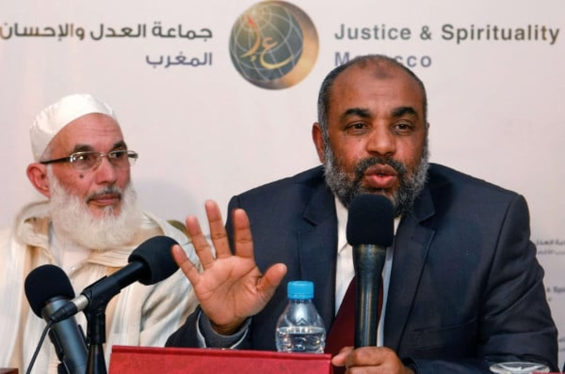The heirs of late Abdessalam Yassine, through their new political platform, have sent a message to the Moroccan authorities suggesting the Adl wal Ihsane movement's desire to enter the political arena.
The Moroccan Islamist association, founded by Cheikh Abdesslam Yassine, is not legal but is tolerated by the Moroccan authorities.
«We are facing a complete electoral program developed by a political party in the making», Driss El Ganbouri, an expert on Islamist groups, told Yabiladi.
«What's striking is the document's detailed examination of all aspects of political participation», El Ganbouri analyzes. «It delves into topics like property ownership, intellectual property, municipal functions, elections, party funding, youth, and women's roles, and even the economy. This level of detail marks a novelty in Adl wal Ihsane's literature».
«Previously, under Abdessalam Yassine's leadership, the Jamaa (the movement) focused on broader themes like the nature of power, hereditary monarchy, and the commandery of the believers», explains El Ganbouri. «This new roadmap signals a break with history, preparing the movement for a new stage of political participation within the existing democratic framework».
Filling the void ? Following PJD's path?
The document notably omits the «commandery of the believers» concept, once a major point of contention between Adl wal Ihsane and the Moroccan state. «This new roadmap arrives amidst the PJD's decline and Moroccans' disillusionment with political parties», observes El Ganbouri.
«The scene craves a new force to restore hope and revitalize political engagement. Due to its background, Adl wal Ihsane could potentially play a role similar to the USFP under Abderrahmane El Youssoufi in 1998 or the PJD under Abdelilah Benkirane in 2011, following the Arab Spring».
In 2013, a year after Yassine's death, Fathallah Arsalane, Adl wal Ihsane's second-in-command, declared to the press: «It's up to the State to express its desire to respect our right to form a political party, unconditionally. Once there's agreement and we have the green light, the rest would be just a formality». Now, eleven years later, the Jamaa seems closer than ever to achieving its goal.





 chargement...
chargement...













